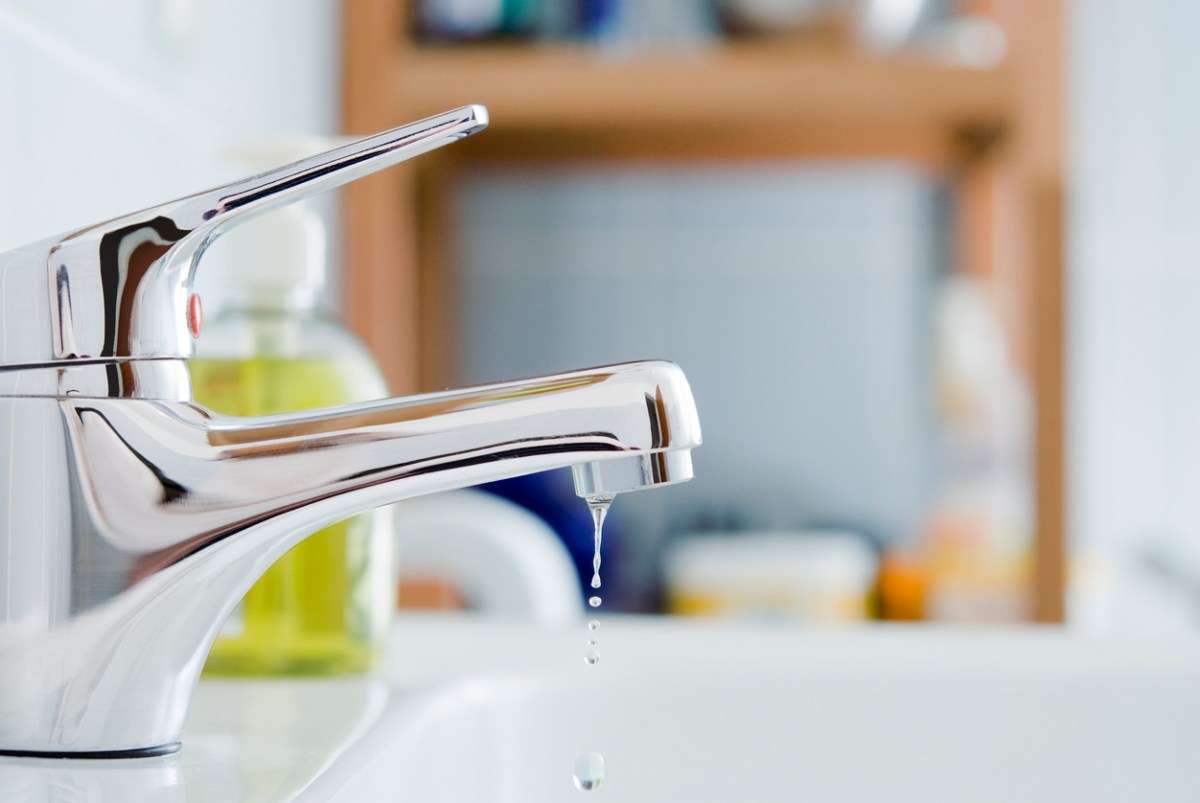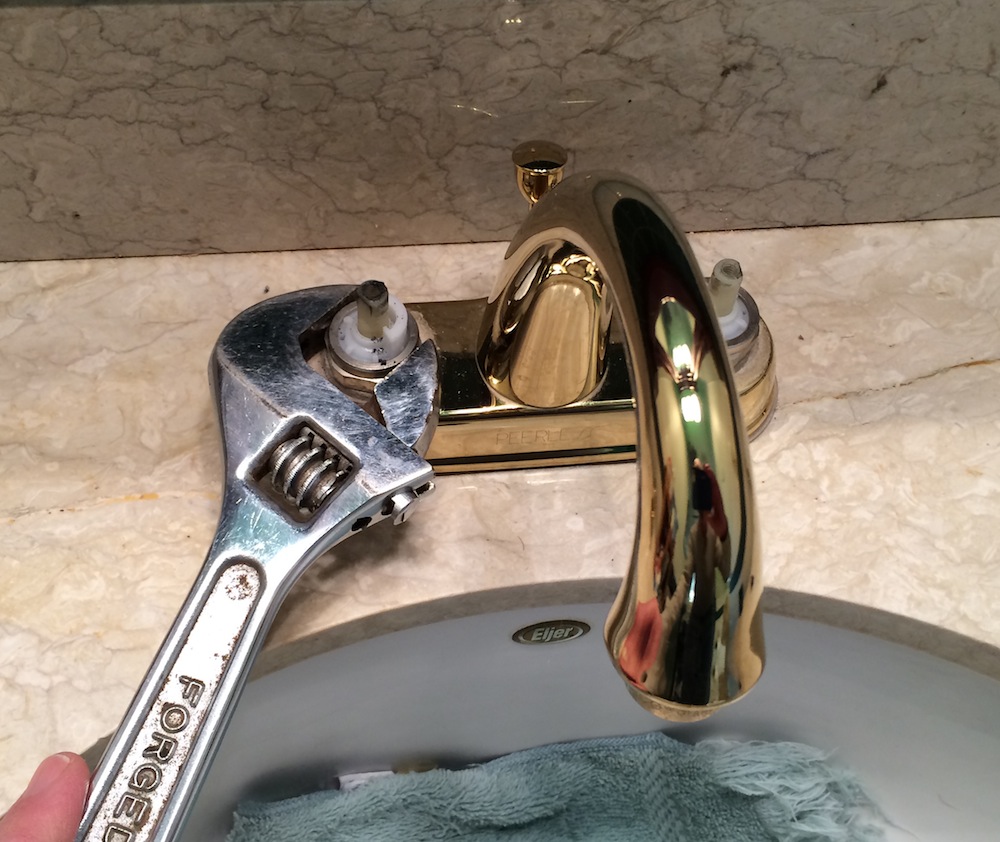When It's Vital to Resolve a Faulty Faucet
When It's Vital to Resolve a Faulty Faucet
Blog Article
We've found this article relating to Should I Repair or Replace a Leaky Faucet? directly below on the web and concluded it made perfect sense to write about it with you here.

Dripping faucets might appear like a minor hassle, yet their influence exceeds just the annoyance of the sound. From wasting water to sustaining unneeded financial costs and health and wellness threats, neglecting a leaking tap can bring about numerous effects. In this short article, we'll look into why it's essential to address this usual household issue without delay and properly.
Wastage of Water
Environmental Influence
Leaking faucets contribute considerably to water wastefulness. According to the Epa (EPA), a solitary faucet dripping at one drip per secondly can squander greater than 3,000 gallons of water per year. This not just strains water sources yet additionally influences ecosystems and wild animals dependent on them.
Financial Expenses
Increased Water Bills
Beyond the ecological impact, trickling faucets can blow up water bills substantially. The collected wastage in time converts into higher utility expenses, which could have been stayed clear of with timely fixings.
Potential Residential Property Damages
Moreover, long term trickling can bring about damage to components and surface areas bordering the tap. Water build-up can create discoloration, corrosion, and also structural concerns if left ignored, resulting in added repair work prices.
Wellness Worries
Mold and Mold Growth
The constant existence of moisture from a trickling faucet produces an optimal atmosphere for mold and mildew and mildew growth. These fungi not just compromise interior air quality yet also position health threats, especially for individuals with respiratory conditions or allergies.
Waterborne Conditions
Stagnant water in leaking faucets can become a breeding ground for microorganisms and various other virus, increasing the danger of waterborne illness. Contaminants such as Legionella bacteria grow in stationary water, possibly causing severe illnesses when consumed or inhaled.
Do it yourself vs. Specialist Repair
Benefits and drawbacks of DIY Repair Work
While some may attempt to take care of a leaking tap themselves, DIY repairs feature their own collection of obstacles. Without proper expertise and tools, do it yourself efforts can worsen the problem or bring about insufficient repair work, prolonging the problem.
Advantages of Employing an Expert Plumber
Hiring a specialist plumber makes certain that the underlying reason for the dripping faucet is resolved successfully. Plumbers have the know-how and tools to detect and repair tap issues efficiently, saving time and lessening the risk of further damage.
Step-by-Step Guide to Repairing a Dripping Tap
Tools Needed
Before attempting to fix a dripping tap, collect the essential devices, consisting of a flexible wrench, screwdrivers, substitute parts (such as washers or cartridges), and plumber's tape.
Usual Faucet Issues and Their Solutions
Identify the type of tap and the particular problem creating the drip. Typical troubles include worn-out washers, corroded shutoff seats, or faulty O-rings. Describe supplier directions or on the internet tutorials for detailed assistance on repairs.
Safety nets
Normal Maintenance Tips
To avoid trickling taps, do routine maintenance such as cleansing aerators, examining for leakages, and replacing damaged parts promptly. Additionally, take into consideration installing water-saving tools or updating to much more reliable fixtures.
Importance of Prompt Services
Resolving leaking faucets as quickly as they're noticed protects against further water wastefulness and potential damage, inevitably conserving both water and money over time.
Impact on Residential Or Commercial Property Value
Understanding of Well-Maintained Home
Preserving a building in good condition, consisting of addressing maintenance problems like dripping taps, boosts its viewed value and desirability among possible customers or renters.
Impact on Resale Value
Residences with well-kept plumbing components, including faucets, command higher resale values in the real estate market. Attending to leaking faucets can contribute to a positive impression throughout residential property evaluations and settlements.
Ecological Responsibility
Specific Payment to Conservation
Taking duty for dealing with trickling taps aligns with more comprehensive initiatives toward water preservation and ecological sustainability. Every person's activities jointly make a substantial impact on preserving priceless resources.
Sustainable Living Practices
By prioritizing punctual fixings and embracing water-saving practices, people add to sustainable living techniques that profit both existing and future generations.
Conclusion
Resolving a dripping faucet goes beyond plain comfort; it's a necessary action towards preserving water, decreasing economic costs, and safeguarding health and residential or commercial property. Whether with DIY repair services or professional aid, taking action to take care of trickling faucets is a tiny yet impactful means to promote liable stewardship of resources and contribute to a healthier, more sustainable future.
How to Fix a Leaky Faucet: Step-by-Step Repair Guide
A leaky faucet may seem like a simple annoyance, but if it's not fixed promptly, that leak could cost hundreds to potentially thousands. From water damage to mold, mildew, and high water bills, even a tiny leak can be catastrophic if left unattended. Damage like this can even affect the overall value of your home, so it's important to take the right approach for leaky faucet repair. You may need the help of a plumber in some cases, but we've got a few tips you can try on how to fix a leaky faucet before calling the pros.
Four Faucet Types
When you're learning how to fix a leaky faucet, the first step is knowing what kind of faucet you're working with! There are four common types.
Cartridge Faucets
Cartridge faucets come in one- or two-handled varieties. In one-handled cartridge faucets, hot and cold water combines in a single cartridge. In the two-handled versions, hot and cold water are controlled separately and mixed in the faucet.
Ball Faucets
Ball faucets have a single lever you push up and down to adjust the pressure and rotate to change the temperature. A slotted metal ball controls the amount of water allowed into the spout.
Compression Washer Faucets
They're the oldest type of faucet, but they're still used in many homes — especially older ones. Compression faucets have two separate handles that, when turned, raise or lower the washer that seals a water valve. This valve stops water from flowing through the faucet when it is turned off.
Disc Faucets
Disc faucets rarely need to be repaired due to their maintenance-free design. The water flow is controlled by two discs — the upper one raises and lowers against a fixed lower disc, creating a watertight seal. If your disc faucet starts leaking, you may need to replace the seals or clean residue buildup from the inlets.
Fixing a Leaky Faucet
Step 1: Turn Off the Water
Whether you're learning how to fix a leaky bathtub faucet or how to fix a leaky kitchen faucet, always turn off the water supply to your working area when you're fixing a leak. The last thing you want is a flood added to your list of things to fix.
Look for the shutoff valves below your sink or around the tub and turn them clockwise to stop the water flow. If your faucet doesn't have shutoff valves, you may need to turn off the water for the whole house. Check to make sure it's off by turning the faucet on. If nothing comes out, you're ready to start the repair.
Step 2: Take Apart the Faucet
How you disassemble your faucet depends on the type of fixture you have. You can use a flathead screwdriver to remove the caps on top of the handle or handles for cartridge and compression faucets. Inside, you should see handle screws. Unscrew these with a screwdriver to remove the handle.
Disc- and ball-style faucets will typically have an inlet screw near the handle, and removing that will reveal the interior of the faucet.
Detach the Valve Stem
For cartridge- and compression-style faucets, you'll see the inner valve stem or cartridge once you remove the faucet handles. If you have a compression faucet, unscrew the brass valve stem. If you have a cartridge faucet, pull out the cartridge. If your cartridge has been in place for a while, it may require some tools or extra force to remove it due to mineral deposits.
Examine and Replace Parts
Once you've removed the parts, check them out to confirm what needs to be replaced. You may see corroded rubber washers, O-rings, stems, or cartridges. On a ball-style faucet, check the seats and springs for damage.
If you need to repair a leaky disc faucet, check the inlet and seals on the lower disc.
Once you determine what parts must be replaced, visit your local hardware store. Bring the damaged parts with you to ensure you can purchase the correct components to replace them.
Clean Valves and Faucet Cavity
If you've removed a stem or cartridge, you may notice mineral buildup in the faucet's threads. Use white vinegar to clean the valve seat by soaking it for a few minutes, then scrub it away with a soft toothbrush and rinse with warm water. You can also clean the interior of the faucet in the same way.
Reassemble the Faucet
Once your faucet is cleaned and the required parts have been replaced, it's time to reassemble it. Put the pieces back together and slowly turn the water supply back on. Doing this slowly is crucial because too much initial water pressure can damage the new hardware you've just installed.
https://homewarranty.firstam.com/blog/how-to-fix-leaky-faucet

We were made aware of that report about from a friend on our other site. Sharing is caring. Helping others is fun. We truly appreciate your readership.
Report this page